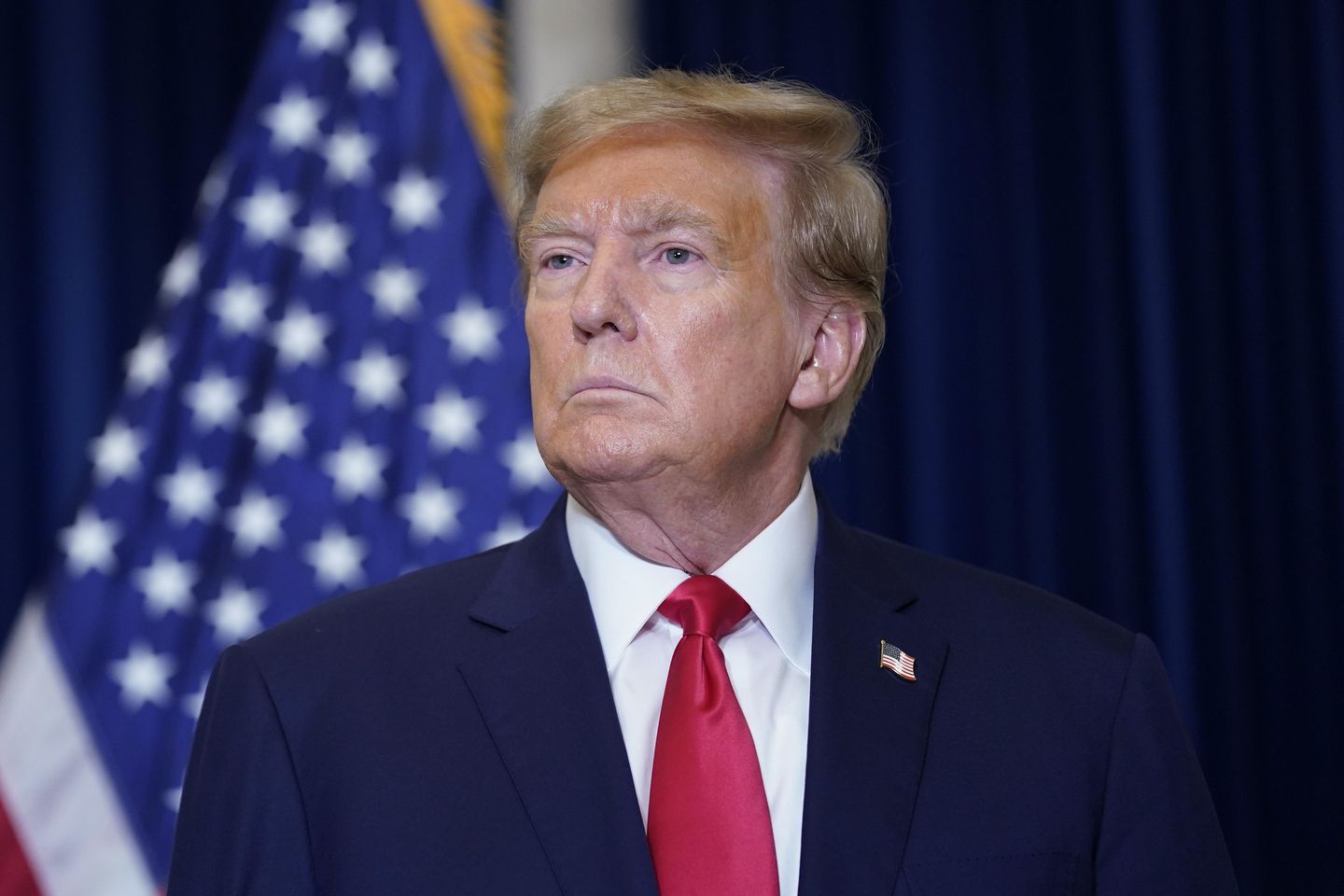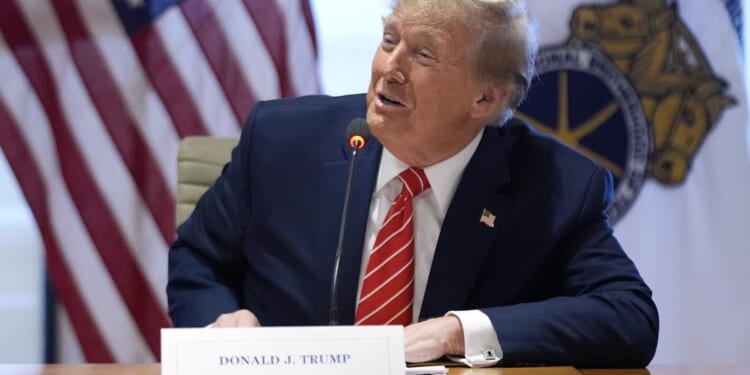
Former President Donald Trump is not immune from criminal prosecution for his efforts to reverse the 2020 election results while in office, a federal appeals court said Tuesday in a blunt ruling that said the ex-president’s stance would “collapse our system of separated powers.”
It is a pivotal ruling that could set up another Supreme Court showdown during the presidential campaign.
“For the purpose of this criminal case, former President Trump has become citizen Trump, with all of the defenses of any other criminal defendant,” a three-judge panel for the U.S. Court of Appeals for the D.C. Circuit wrote in a unanimous decision. “But any executive immunity that may have protected him while he served as president no longer protects him against this prosecution.”
A criminal case alleging Mr. Trump conspiring against the U.S. and its voters was put on hold while the immunity claims were disputed in the higher courts.
Mr. Trump said he was acting in his official capacity when he tried to root out election fraud in 2020 and overturn the results. He said presidents have to make tough calls all the time and failing to grant immunity would spark a cycle of political prosecutions from administration to administration.
The court rejected that argument.
SEE ALSO: Trump to appeal immunity ruling to ‘safeguard the presidency,’ campaign says
“We conclude that the interest in criminal accountability, held by both the public and the Executive Branch, outweighs the potential risks of chilling Presidential action and permitting vexatious litigation,” the ruling said.
“It would be a striking paradox if the President, who alone is vested with the constitutional duty to ‘take Care that the Laws be faithfully executed,’ were the sole officer capable of defying those laws with impunity,” the judges said. “Past Presidents have understood themselves to be subject to impeachment and criminal liability, at least under certain circumstances, so the possibility of chilling executive action is already in effect.”
Also, Mr. Trump‘s attorney argued he can’t be prosecuted for actions he took as president because he wasn’t impeached and convicted in Congress.
The circuit panel was skeptical of the impeachment argument, even suggesting a president could order the assassination of a political rival and still not face prosecution if Congress did not impeach and convict him.
In its ruling, the court said impeachment and criminal prosecution are separate processes. It also said the impeachment article and indictment charged Mr. Trump with different offenses.
“In light of the very different procedures and purposes associated with impeachment proceedings as compared to criminal proceedings, former President Trump‘s reliance on the Double Jeopardy Clause is misplaced,” the judges wrote. “Impeachment is not a criminal process and cannot result in criminal punishment.”
SEE ALSO: Trump tells Supreme Court to let the people — not the court — decide who is a valid candidate
Trump campaign spokesman Steven Cheung said the former president will appeal the decision. He warned that under the ruling as written, every president who leaves office will be indicted by the opposing party.
“Without complete immunity, a President of the United States would not be able to properly function!” he said. “Prosecuting a President for official acts violates the Constitution and threatens the bedrock of our Republic. President Trump respectfully disagrees with the DC Circuit’s decision and will appeal it in order to safeguard the Presidency and the Constitution.”
The ex-president can seek another hearing before the full circuit court and seek redress from the Supreme Court.
Mr. Trump has until Monday to request an emergency stay from the Supreme Court, a move that would stop the clock on his trial and give his side time to develop his appeal. Ultimately, the justices will decide whether to take up the matter or leave the ruling in place.
Mr. Trump has a vested interest in seeing the trial delayed until the election, when he may retake control of the White House and Department of Justice.
Jonathan Turley, a law professor at George Washington University, said the remaining appeals process over the immunity claim and pre-trial work could take months.
“That puts the trial very close to the election and would raise obvious concerns given the long-standing DOJ policy to avoid trials within a few months of an election,” he wrote on X.
Circuit court arguments took place on Jan. 9 before judges J. Michelle Childs and Florence Pan, who were appointed by President Biden, and Karen LeCraft Henderson, who was appointed by George H.W. Bush.
During the wait for a ruling, U.S. District Court Judge Tanya Chutkan delayed Mr. Trump‘s trial indefinitely, raising fears among Trump critics that the trial and a possible conviction would be delayed until after the November election.
Mr. Trump says the trial is part of a coordinated Democratic effort to thwart his political ambitions. He faces four criminal cases up and down the East Coast while he campaigns as the front-runner for the GOP presidential nomination and a rematch with President Biden.
However, the federal election subversion case is viewed as the marquee case.
The appeals court’s opinion ticks through the various steps Mr. Trump took to challenge the 2020 election results, including pressuring state officials and the Department of Justice to find voter fraud; setting up a false slate of electors in states he lost to Mr. Biden; and leaning on Vice President Mike Pence to send the electoral vote-counting process back to the states instead of certifying the votes in Congress.
Mr. Trump rallied supporters in Washington before they walked to the Capitol and broke into the building on Jan. 6, 2021. The ruling notes that many of the rioters have been prosecuted.
The three-judge panel notes that “hundreds of people” have been prosecuted and imprisoned for their roles in the attack and that Mr. Trump was indicted last August.
The indictment led by special counsel Jack Smith charges Mr. Trump with four criminal charges: one count of conspiracy to defraud the U.S., one count of conspiracy to violate civil rights and two counts of attempting to obstruct the vote-certification proceedings.
“At bottom, former President Trump‘s stance would collapse our system of separated powers by placing the President beyond the reach of all three Branches,” the judges wrote. “We cannot accept that the office of the Presidency places its former occupants above the law for all time thereafter.”












